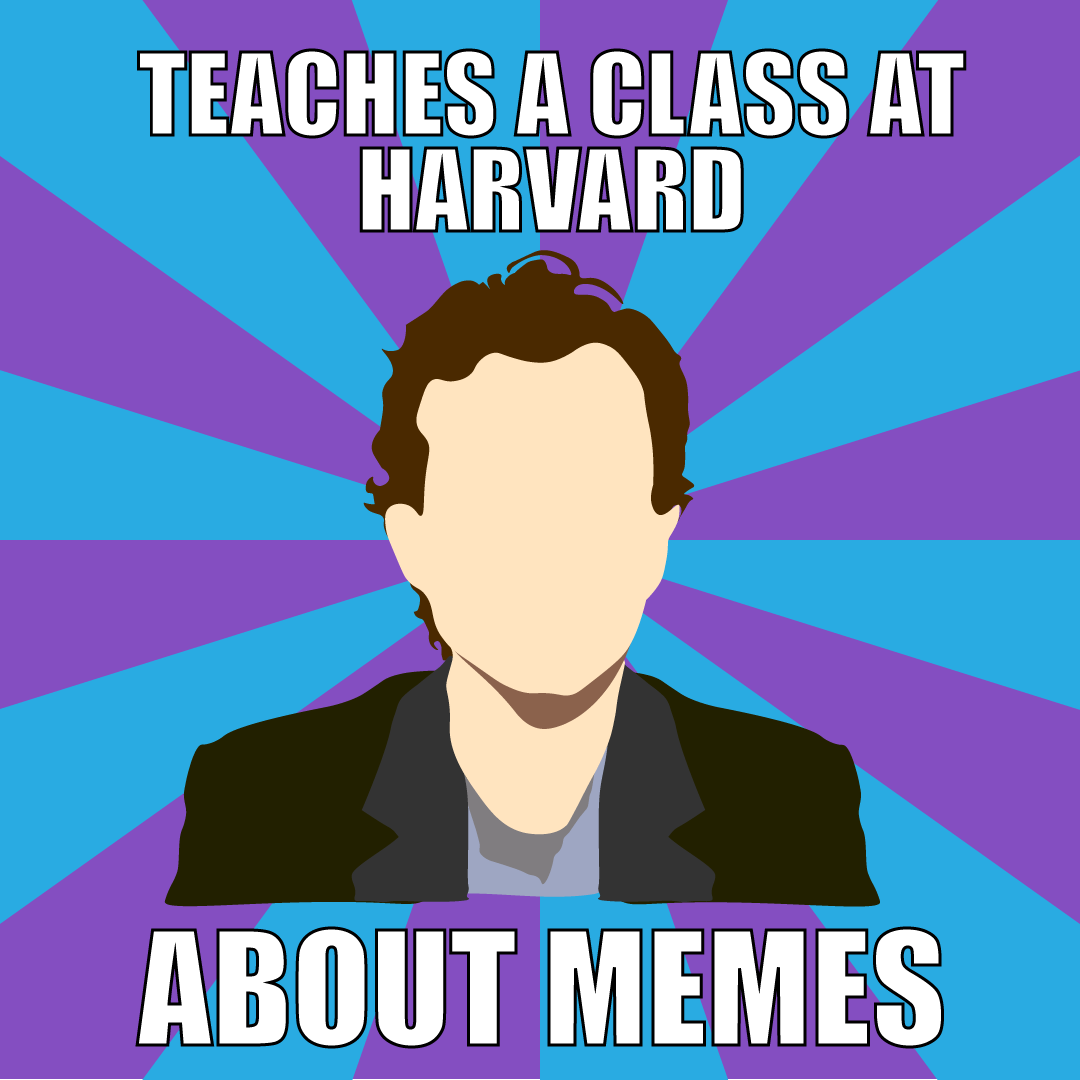
Into the Bronysphere — An Academic Take on Social Media
For Lowell A. Brower, teaching is all about using folklore to explore pressing issues in the world. In his newest course, FolkMyth 150: Internet Folklore, Online Communities, and Digital Storytelling, he focuses on the role of folklore in the internet and social media.
Between the excitement of Brower’s TikTok format syllabus — only one of many posts on his TikTok account — and the attractiveness of “netsets” that replace traditional problem sets, FolkMyth 150 has seen a massive influx of interest.
When it was first offered last fall, the class was intended to be capped at 15 students but ended up with 50. This semester, the enrollment limit was supposed to be 30 — but the final class size nears 100 students.
So why do students love the class so much?
Much of the course’s appeal lies in Brower’s willingness to acknowledge social media platforms like TikTok, Reddit, and 4chan — typically not accepted as worthy of academic study — as “deeply consequential.”
“I take it seriously because I actually think it’s deeply serious,” Brower says. “I think if we take [social media platforms] seriously and pay attention to them, they become kind of equally — if not more — important than the official discourses that filter from the top down.”
The course aims to explore “the powers, potentials, and peculiarities of online storytelling in relationship to community-building, political engagement, social change, and everyday negotiations of individual and group identity,” its syllabus says. To this end, assignments feature three-minute flash presentations from all members of the class, and course readings include an Atlantic article about the cottagecore trend and a book titled “Memes in Digital Culture.”
For Sravya S. Kuchibhotla ’23, the importance Brower places on these platforms is a refreshing change of pace.
“One of the reasons I really liked this class was because it wasn’t like ‘‘TikTok, this is a new phenomenon,’” she says. “Instead, it was like, ‘We’re gonna apply folklore and myth ideas to this particular medium and see what is similar, what is different, and how has it evolved.’”
“People talk about TikTok like it’s some kind of pop culture or alternative culture or whatever, but this is mainstream. This is where things happen,” she adds.
Given the relevance and popularity of social media among students, Brower hopes that this class will be an “excuse for people to think hard about what they’re already doing.”
“I think that’s something that students respond to — that the class is applicable to their everyday life,” he says. “It gives them some tools and terminologies and frameworks through which to think about their everyday online explorations that they’d be taking anyway.”
Brower also values the “experiential learning” component of the course and always aims to show students what folklore in action looks like. Sometimes, that takes the form of bringing My Little Pony figurines to a lecture on Bronies — members of the My Little Pony fandom. Other times, it simply means allowing students the freedom to explore and implement their knowledge in the real world.
“The point of coming to a place like Harvard is to figure out how to make an impact in the world and how to use your education for the good of the world,” Brower says. “If you can work up a Facebook post that can convince your problematic uncle that he might be wrong about the crazy conspiracy theory that he’s peddling, for a class assignment, I think that’s a much more powerful impact than a perfect essay analyzing and theorizing about Facebook politics.”
This pedagogical philosophy particularly resonates with students, who find the applications both fun and enriching.
Nicole T. Rozelman ’23, a FolkMyth 150 student who is pursuing a secondary in Folklore and Mythology, says that, after a year of Zoom lectures, students were “looking to really engage with a class.”
“He uses a lot of media evidence,” Rozelman says of Brower. “Instead of just talking about a concept, he’ll show us five different examples of it in video format or image format. So that’s a really great way to really solidify what we’re learning about, and also it’s really enjoyable.”
Through this course, Brower hopes that students will find a way to apply the tools of the folklore discipline to the world’s problems.
“I think the best thing that can come out of this class is that someone finds a mode of online engagement, a mode of internet communication that helps them tell the stories they want to tell, and engage and change the world in the way they want to change it,” he says.
— Magazine writer Claire Yuan can be reached at claire.yuan@thecrimson.com. Follow her on Twitter @claireyuan33.


